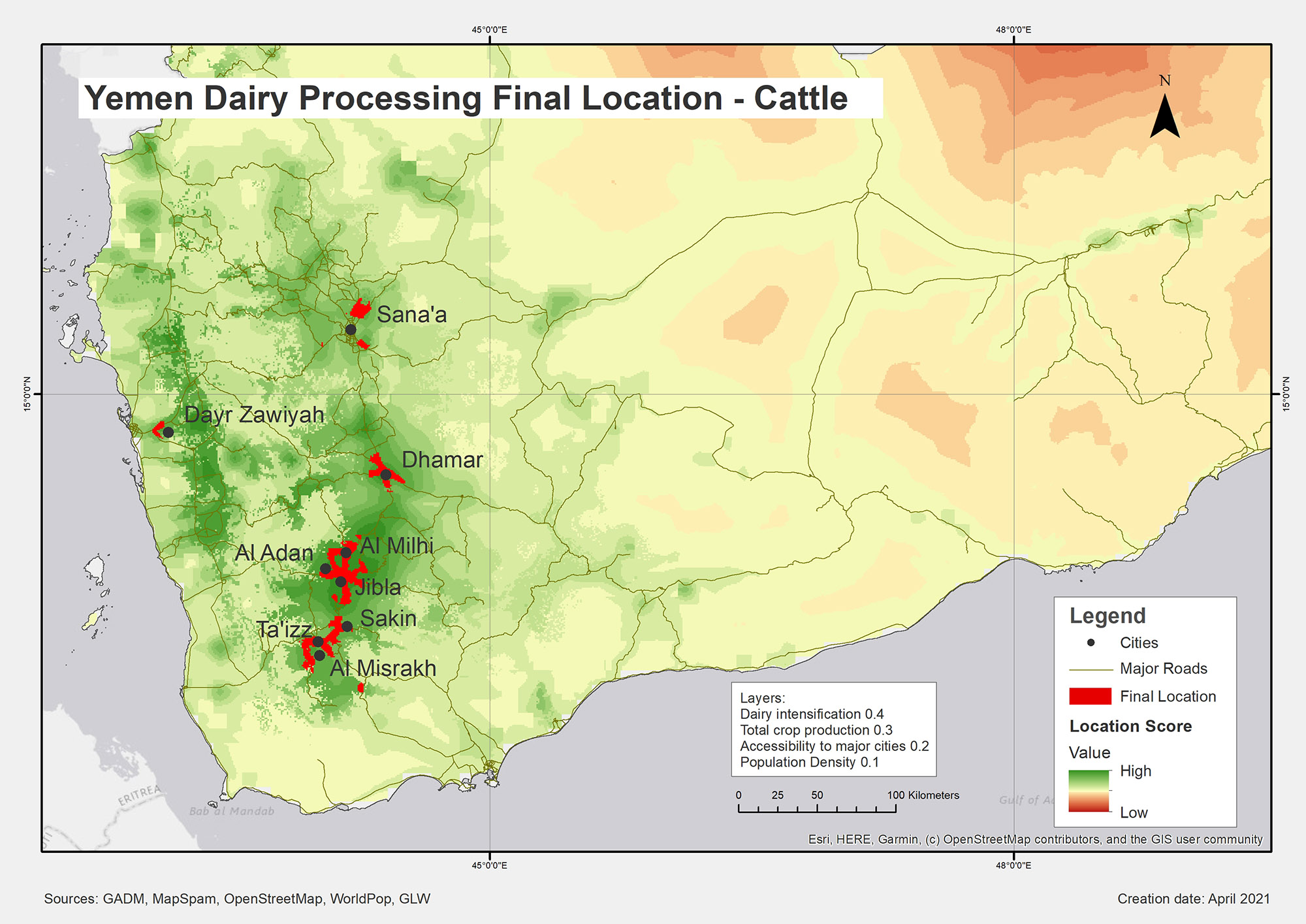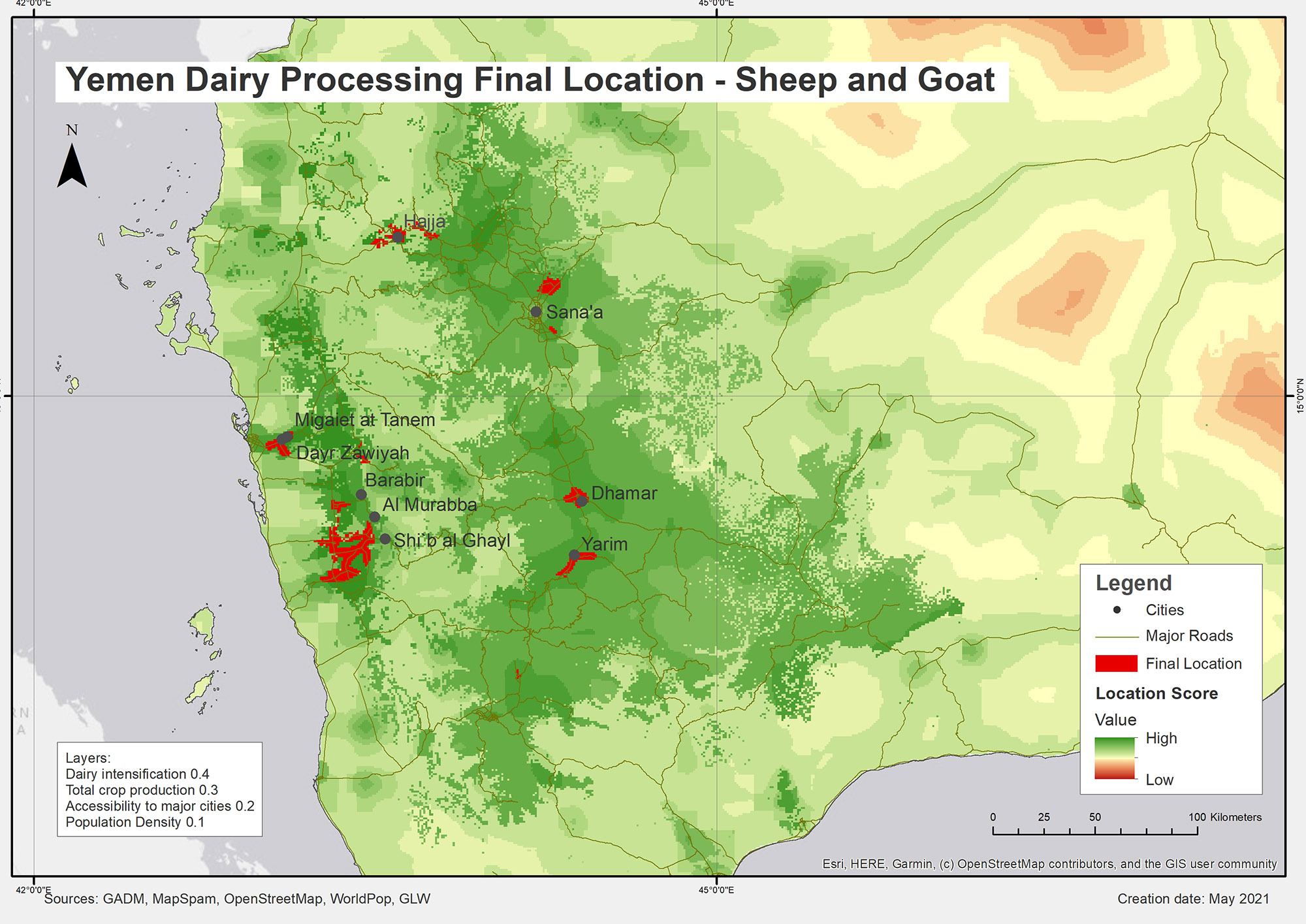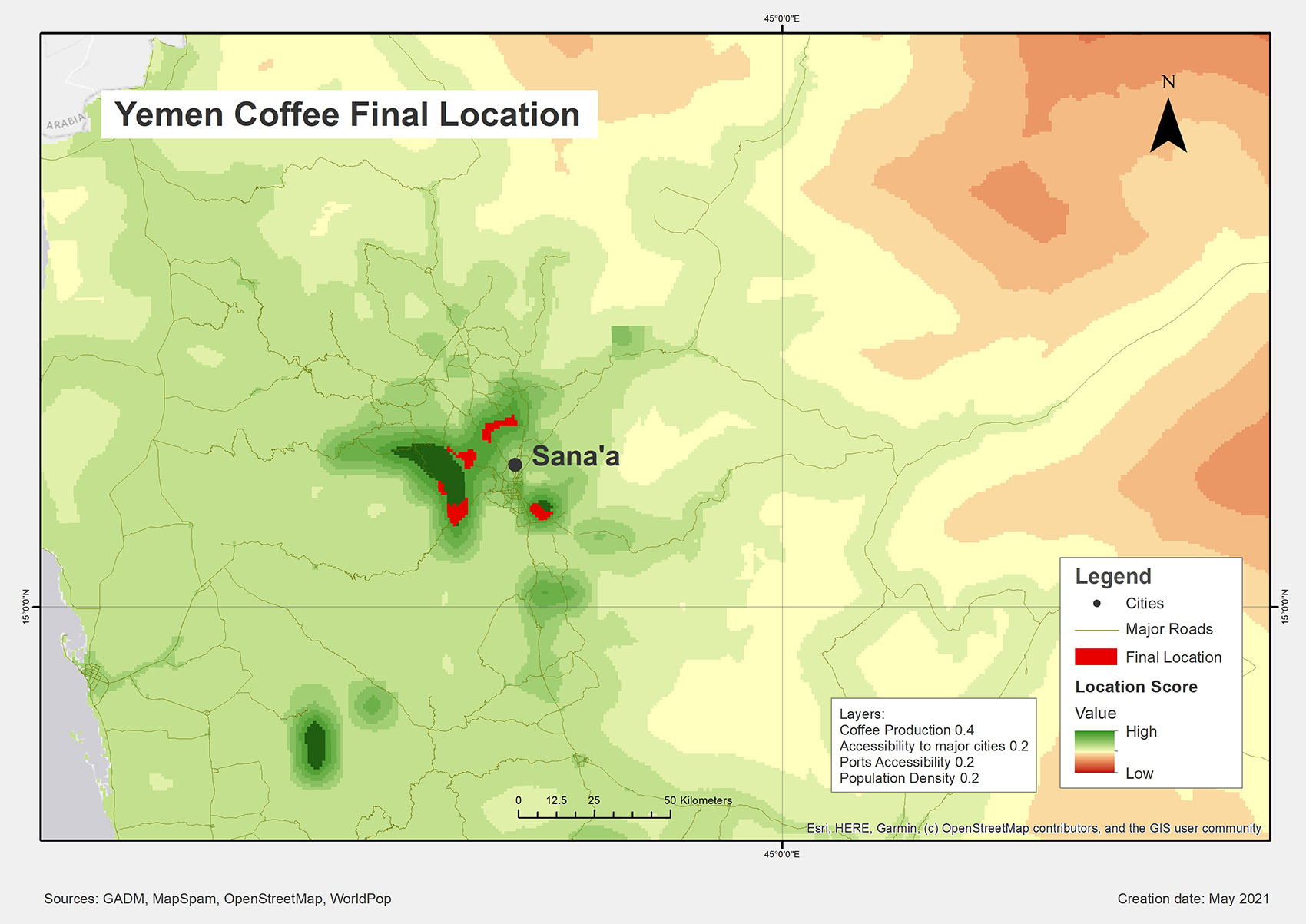Yemen |
THE PROPOSAL
The Government of Yemen has a plan to promote sustainable agriculture and economic growth, which will improve household nutrition and resilience by 2030. This is supported by five pillars:
- Improve diets and feeding practices of vulnerable households
- Increase performance and competitiveness of nutrition-sensitive value chains and climate-resilient management of natural resources
- Boost socio-economic inclusion of most vulnerable populations in agri-food systems
- Improve governance and create an enabling environment to pursue the above goals
The Hand-in-Hand Initiative supports activities in the eastern part of the country to support the transition from humanitarian investment to development investment.
COMMODITIES AND INTERVENTIONS
Horticultural Seedling Production
Poor seedlings are responsible for around 30% of the reduction in productivity, leading to unmet high demand of quality seedlings. The Government is focusing on investments in farmer-driven, joint horticultural seedling centres, or HSC, with three 200 square meters of greenhouses.
In the Abyan, Dhamar, Haijjah and Lahj regions, the centres have a capacity to produce 200,000 seedlings per cycle. The centres are designed to carry out one and a half production cycles per greenhouse annually. This brings the total annual production to 300,000 seedlings per greenhouse or 900,000 seedlings per horticultural seedling centres a year.
An investment of US$3.1 million would directly benefit 16,800 farmers. Every centre would create three new jobs. Using high-quality seedling for half of the market price or selling it for 40% profit would increase per capita income to US$1,030. The internal rate of return is estimated at 20%.
Dairy
Dairy facilities face major issues due to limited availability of cooling technologies and poor hygiene standards. This has resulted in low prices of milk and processed dairy products. Unsurprisingly, investments focus on setting up dairy processing plants in the Alhodiedah, Dhamar, Lahj and Taiz regions to process 700 metric tons of milk annually, which will be used to produce yogurt (50%), labneh (30%) and white soft cheese (20%).
An investment of US$9.1 million would benefit 34,000 people and increase per capita income by US$544. The estimated internal rate of return is 22%.


Beekeeping
Given limited agricultural land and the terraces in Western mountainous districts, as well as water scarcity, producers need to focus on high-value products or off-farm income-generating activities. The premium price offered to Yemeni niche honey products at home and abroad has turned beekeeping into an attractive income-generating activity. There is great potential to boost the production and yields of honey to export them at high prices to countries in the region and the U.S.
Investments will be made in beehives, bees, equipment and training to boost beekeeping in the Abyan, Hajjah and Imran regions. An investment of US$ 113 million would benefit 280,000 farmers, increasing their income by US$2,145 per capita. The internal rate of return is estimated to be 15%.
Coffee terraces
The Government has selected coffee as a primary crop to improve biodiversity. The area cultivated can expand from 34,200 to 43,500 hectares, and there is an untapped export potential of 60%. Investments are being targeted in the Abyan, Sana'a, Haijjah and Taiz regions to rehabilitate terraces and put fallow land back into use, reduce water loss and erosion, improve soil fertility and biodiversity. Around 40-50% of terraces need to be rehabilitated.
An investment of US$61.2 million could lead to a large-scale expansion of coffee industry, generating jobs, especially for women, and bringing foreign currency into the country. Such investment would benefit 98,000 farmers, increasing their income by US$1,415 per capita. The internal rate of return is estimated to be 20%.

- See the slide deck presentation, "Revitalizing the Agrifood Sector to Improve Food and Nutrition Security and Resilience in Yemen: The Role of Public and Private Investments." See here for the Arabic version.
- In the news: " Minister Socotra heads our country's delegation participating in the first investment forum in Rome," AIC TV, 19 October 2022
- In the news: "Minister Socotra heads our country's delegation to participate in the first investment forum in Rome," Al-Omanaa.net, 19 October 2022
- In the news: "Yemen participates in the investment forum for the 'Hand in Hand' initiative in Rome," Saba Net News, 19 October 2022

